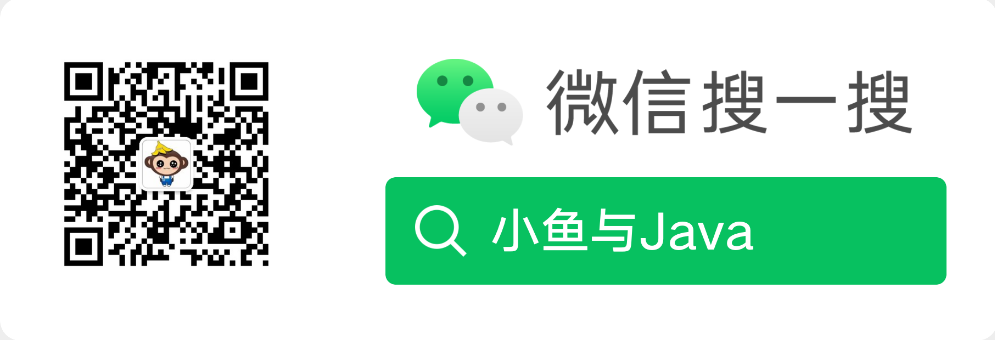策略模式 1.需求分析: 一個考試系統,當考生的成績通過後(成績大於60分)會通過各種方式通知用戶。 通知方式有:APP消息推送、簡訊、郵件、站內消息四種方式; 但是每種方式是否進行通知是要進行在表中配置的; 假設我們從表中查詢後的對象如下: 2.常規操作 最簡單的就是使用if else進行判斷了。 ...
策略模式
1.需求分析:
一個考試系統,當考生的成績通過後(成績大於60分)會通過各種方式通知用戶。
- 通知方式有:APP消息推送、簡訊、郵件、站內消息四種方式;
- 但是每種方式是否進行通知是要進行在表中配置的;
- 假設我們從表中查詢後的對象如下:
/**
* 成績對象
*/
public class Score {
//成績
private int score;
//是否使用app消息通知,使用0表示否,1表示是。下同
private int sendAPPMsg;
//是否使用簡訊通知
private int sendSms;
//是否使用郵件通知
private int sendMail;
//是否使用站內消息通知
private int siteMsg;
//其他的一些非主要屬性不再此加入,比如手機號,郵箱號等
//get and set method
}2.常規操作
- 最簡單的就是使用if-else進行判斷了。對每個配置條件進行判斷,如果需要進行通知就進行通知
/**
* 使用常規的if-else操作
*/
public class IfDemo {
/**
* 使用if-else進行通知
*
* @param score 傳入的分數對象
*/
public void sendNotice(Score score) {
if (score.getScore() >= 60) {
if (score.getSendAPPMsg() == 1) {
//這裡是進行通知的具體實現,為了和後邊形成更直接的對比,我加了好多代碼
System.out.println("進行app消息推送1");
System.out.println("進行app消息推送2");
System.out.println("進行app消息推送3");
System.out.println("進行app消息推送4");
}
if (score.getSendSms() == 1) {
System.out.println("進行簡訊通知1");
System.out.println("進行簡訊通知2");
System.out.println("進行簡訊通知3");
System.out.println("進行簡訊通知4");
}
if (score.getSendMail() == 1) {
System.out.println("進行郵件通知1");
System.out.println("進行郵件通知2");
System.out.println("進行郵件通知3");
System.out.println("進行郵件通知4");
}
if (score.getSiteMsg() == 1) {
System.out.println("進行站內消息通知1");
System.out.println("進行站內消息通知2");
System.out.println("進行站內消息通知3");
System.out.println("進行站內消息通知4");
}
}
}
}對於每種通知方法,我只進行了一句簡單的列印,實際中就會寫上進行通知的方法
- Junit測試代碼(與業務代碼無關)
public class NoticeTest {
private Score score;
@BeforeEach
public void beforeTest(){
score = new Score();
score.setScore(95);
score.setSendAPPMsg(1);
score.setSendMail(1);
score.setSendSms(1);
score.setSiteMsg(1);
}
@Test
public void ifDemoTest() {
IfDemo ifDemo = new IfDemo();
ifDemo.sendNotice(score);
}
}這樣寫沒有任何問題,代碼肯定是能跑起來的。但是,我們是直掛將每個通知的方法(也就是每種通知方法的具體實現)寫在了上邊代碼中,如果要改的話我們就要對這裡進行修改。所以我們進行一次優化,就是將上邊的每一種通知代碼進行一次方法抽取。
3.使用方法抽取進行優化
將上邊的各個通知方法進行一次抽取,可以放在本類下,也可以將通知方法單獨放在一個類中,我是放在了一個單獨的類中。通知類有如下方法:
/**
* 通知類,
*/
public class NoticeService {
public void sendAppNotice(){
System.out.println("進行app推送通知1");
System.out.println("進行app推送通知2");
System.out.println("進行app推送通知3");
System.out.println("進行app推送通知4");
}
public void sendSms(){
System.out.println("進行簡訊通知1");
System.out.println("進行簡訊通知2");
System.out.println("進行簡訊通知3");
System.out.println("進行簡訊通知4");
}
public void sendMail(){
System.out.println("進行郵件通知1");
System.out.println("進行郵件通知2");
System.out.println("進行郵件通知3");
System.out.println("進行郵件通知4");
}
public void sendSiteMsg(){
System.out.println("進行站內消息通知1");
System.out.println("進行站內消息通知2");
System.out.println("進行站內消息通知3");
System.out.println("進行站內消息通知4");
}
}- 這時的這個socre判斷通知類如下:
package cn.lyn4ever.v2;
import cn.lyn4ever.bean.Score;
/**
* 進行分數判斷是否通知的類
*/
public class NoticeDemo {
/**
* 處理是否進行通知的主要方法
*
* @param score
*/
public void sendNotice(Score score) {
NoticeService noticeService = new NoticeService();
if (score.getScore() >= 60) {
if (score.getSendAPPMsg() == 1) {
//這裡只需要寫這一句就可以進行通知,而不像剛纔那樣,下同
noticeService.sendAppNotice();
}
if (score.getSendSms() == 1) {
noticeService.sendSms();
}
if (score.getSendMail() == 1) {
noticeService.sendMail();
}
if (score.getSiteMsg() == 1) {
noticeService.sendSiteMsg();
}
}
}
}- 進行測試的方法
@Test
public void noticeDemoTest(){
NoticeDemo noticeDemo = new NoticeDemo();
noticeDemo.sendNotice(score);
}有小伙伴會問了,這樣寫的方法和上邊沒有任何區別啊?為什麼要這麼做?
- 這樣的話就將整個通知方法的細節放在幾個單獨的方法中,只需要一句就可以調用通知方法了
- 而且當我們要修改通知方法的代碼時,不用修改原來的方法啊
這種方式雖然將通知方法進行了單獨的方法抽取,降低了一定的耦合。但是呢?
如果,我們有一個或多個新的通知方式要添加,比如微信、QQ。那你要改的地方是哪兒?
1.在Score的bean中添加兩個欄位,這個是必須的
2.在NoticeService中添加兩個新的通知方法
public void sendQQ(){
System.out.println("進行QQ消息通知1");
System.out.println("進行QQ消息通知2");
System.out.println("進行QQ消息通知3");
System.out.println("進行QQ消息通知4");
}
public void sendWX(){
System.out.println("進行WX消息通知1");
System.out.println("進行WX消息通知2");
System.out.println("進行WX消息通知3");
System.out.println("進行WX消息通知4");
}3.在NoticeDemo中添加兩個if判斷
if (score.getSendQQ() == 1) {
noticeService.sendQQ();
}
if (score.getSendWX() == 1) {
noticeService.sendWX();
}3.使用策略模式進行優化
策略模式(Strategy),定義了一組演算法,將每個演算法都封裝起來,並且使它們之間可以互換
- 定義一個通知的介面
package cn.lyn4ever.v3;
public interface INotice {
void notice();
}- 寫出它不同通知方式的不同實現(只寫一個)
public class AppNoticeImpl implements INotice {
@Override
public void notice() {
System.out.println("進行app消息推送");
}
}- 通知的service方法如下:
public class NoticeService3 {
/**
* 只提供一個通知方法,參數為通知介面
* @param iNotice
*/
public void notice(INotice iNotice) {
iNotice.notice();
}
}- 利用分數判斷的通知方法如下:
public class NoticeDemo3 {
public void sendNotice(Score score) {
NoticeService3 noticeService = new NoticeService3();
if (score.getScore() >= 60) {
if (score.getSendAPPMsg() == 1) {
noticeService.notice(new AppNoticeImpl());
}
if (score.getSendSms() == 1) {
noticeService.notice(new SmsNoticeImpl());
}
if (score.getSendMail() == 1) {
noticeService.notice(new MailNoticeImpl());
}
if (score.getSiteMsg() == 1) {
noticeService.notice(new SiteNoticeImpl());
}
}
}
}有的小伙伴可能會認為這不是在重覆造輪子嗎?這和方法一、方法二讓人更難理解
其實並不是在重覆地造輪子,這樣做就體現了面向對象開發的“封裝”特性,相比第一種方法,更好地“面向對象”開發,而且封裝了整個每一個通知方法的實現,降低了通知這個功能的耦合度,使得每一種通知方法有自己的實現。
比如上邊的一個新需要,當我們需要新增“QQ”和“微信”通知的時候,這時只需要添加兩個新的INotice的實現類,併在if條件中加兩句就可以了,NoticeService類不用再次修改
更多的設計模式學習,請關註我的微信公眾號“小魚與Java”




